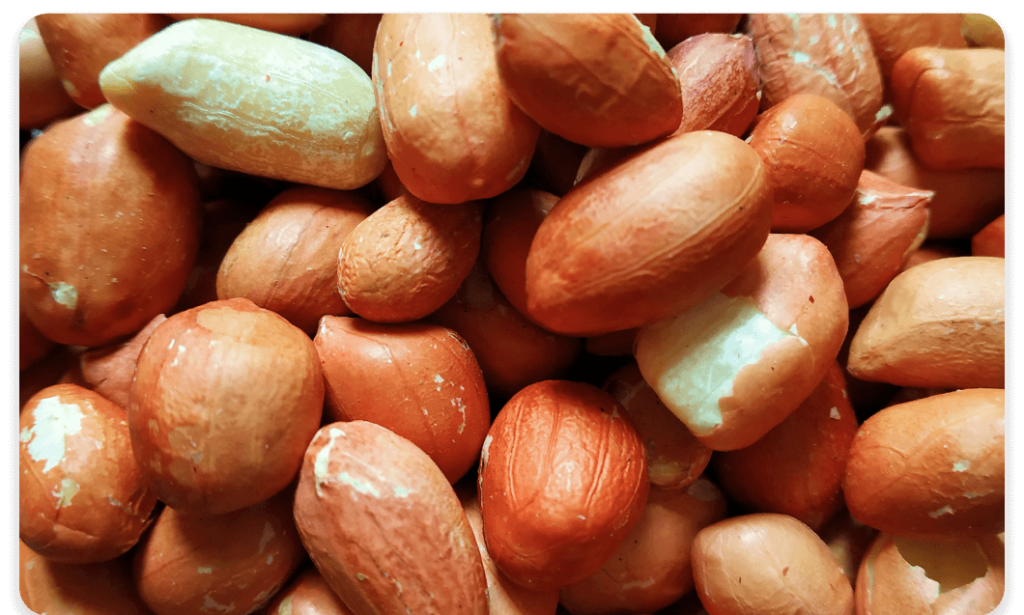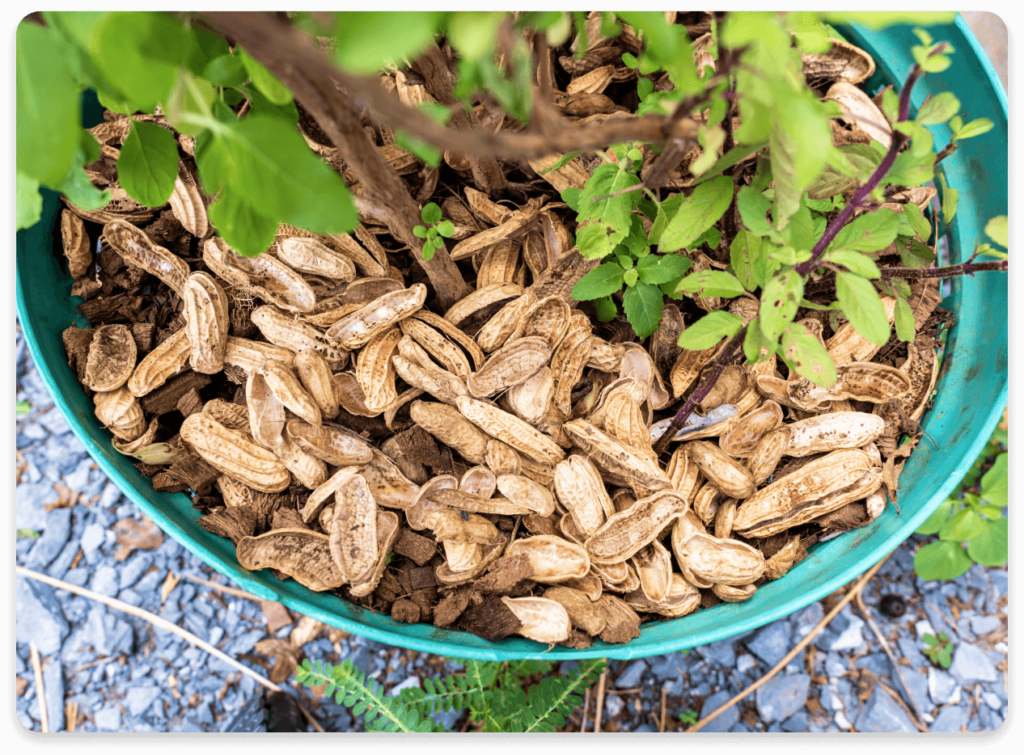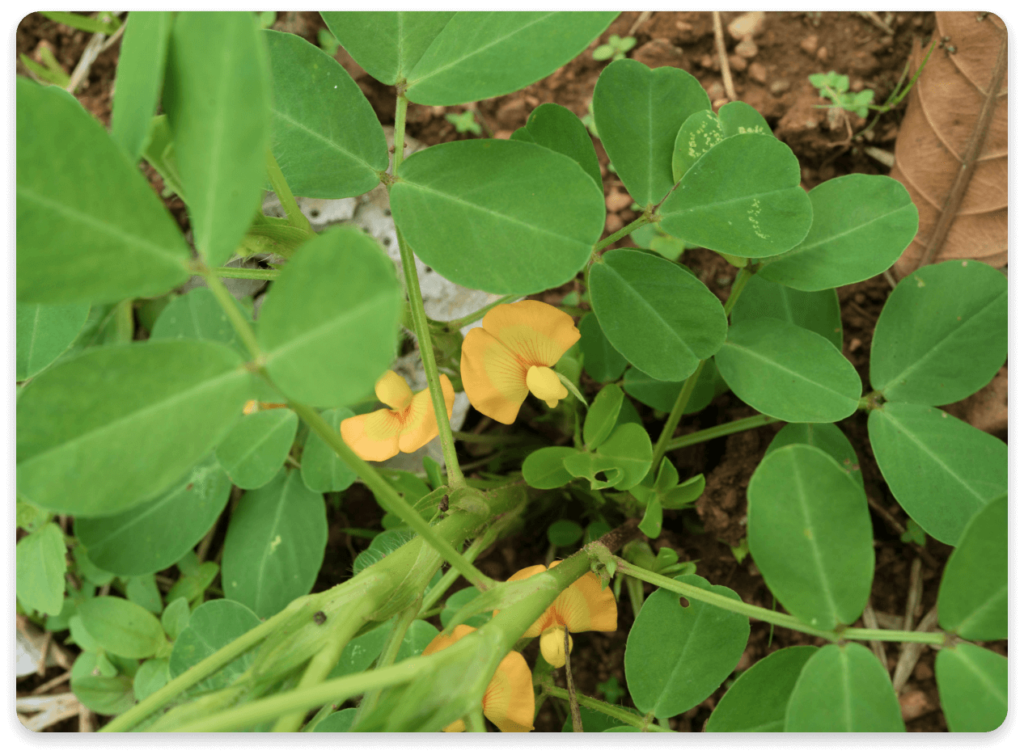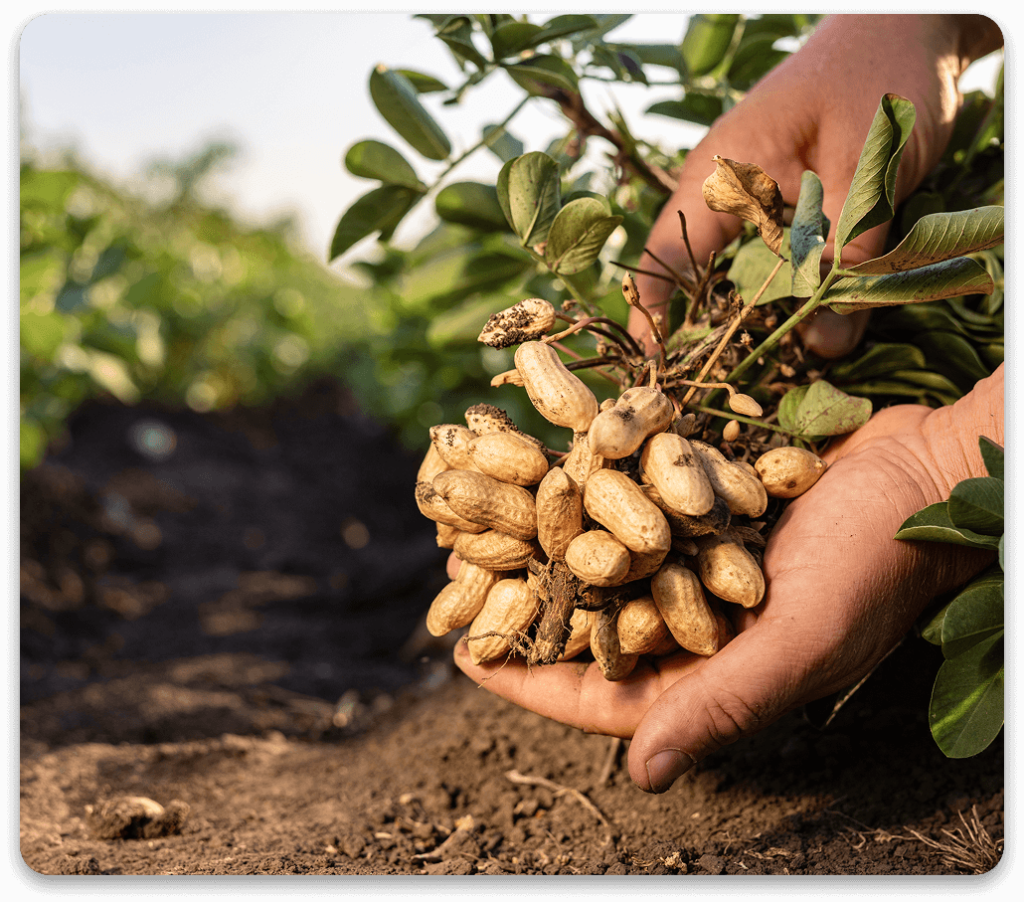

Groundnut plants require various nutrients for their optimal growth and production such as nitrogen, phosphorus, potassium, calcium and magnesium.
Nitrogenous fertilisers like urea or ammonium sulfate are commonly applied to supplement nitrogen levels in the soil.
Phosphatic fertilisers such as single superphosphate or diammonium phosphate are commonly used to supply phosphorus to the soil.
Potassium-based fertilisers like potassium chloride or potassium sulfate are applied to meet the potassium requirements of groundnut plants.
Lime or calcium-containing fertilisers like calcium nitrate can be used to address calcium deficiencies in the soil.
Magnesium sulfate or dolomite lime can be used to supplement magnesium levels in the soil.
Sulphur-containing fertilisers like ammonium sulfate or gypsum are used to supply sulphur to the soil.
Micronutrient-rich fertilisers or foliar sprays are utilised to address micronutrient deficiencies.
The nutrient requirements of groundnut plants can vary depending on factors such as soil type, climate, cultivar and crop age. Soil testing and foliar analysis can help determine the specific nutrient needs of groundnut plants, enabling targeted fertiliser applications to optimise growth, sugar yield and overall plant health.


Groundnut seeds require adequate moisture for successful germination. During this stage, the soil should be kept consistently moist to ensure proper seedling emergence and establishment. Frequent, light irrigation may be required to maintain soil moisture until the seedlings are well established.

During the vegetative growth stage, groundnut plants require regular watering to support leaf development, canopy formation and overall plant growth. Maintaining adequate soil moisture levels is necessary to promote healthy and vigorous foliage.

Water availability becomes critical during the groundnut plant's flowering and pod formation stage. Insufficient water during this period can lead to poor pod development and reduced yield. Adequate soil moisture should be maintained to support this stage

Groundnut plants have a unique growth habit where the developing pods penetrate the soil after flowering. This stage is called pegging. Adequate soil moisture is crucial during pegging as it facilitates successful pod penetration. The soil should be well-moistened to allow the easy penetration and development of pods.

As groundnut plants reach maturity, they require less water compared to earlier growth stages. It is important to reduce irrigation during this period to prevent excess moisture in the soil, which can lead to diseases and quality issues. The soil should be allowed to dry slightly before harvesting.
In areas with inadequate rainfall or during dry spells, supplemental irrigation is necessary to meet the water demand of groundnut plant as and when required. Groundnuts are relatively drought-tolerant but sufficient soil moisture should be maintained during critical growth stages to ensure optimal yield and quality.
It’s important to monitor soil moisture levels regularly and adjust irrigation practices accordingly to ensure that groundnut plants receive adequate water during different growth stages. Local agricultural experts, extension services or experienced groundnut growers can provide valuable guidance on the specific water requirements for groundnut cultivation in a particular region.
Districts: West Midnapore, East Midnapore
District: Bhagalpur
District: Ranchi
Districts: Sundargarh, Mayurbhanj
